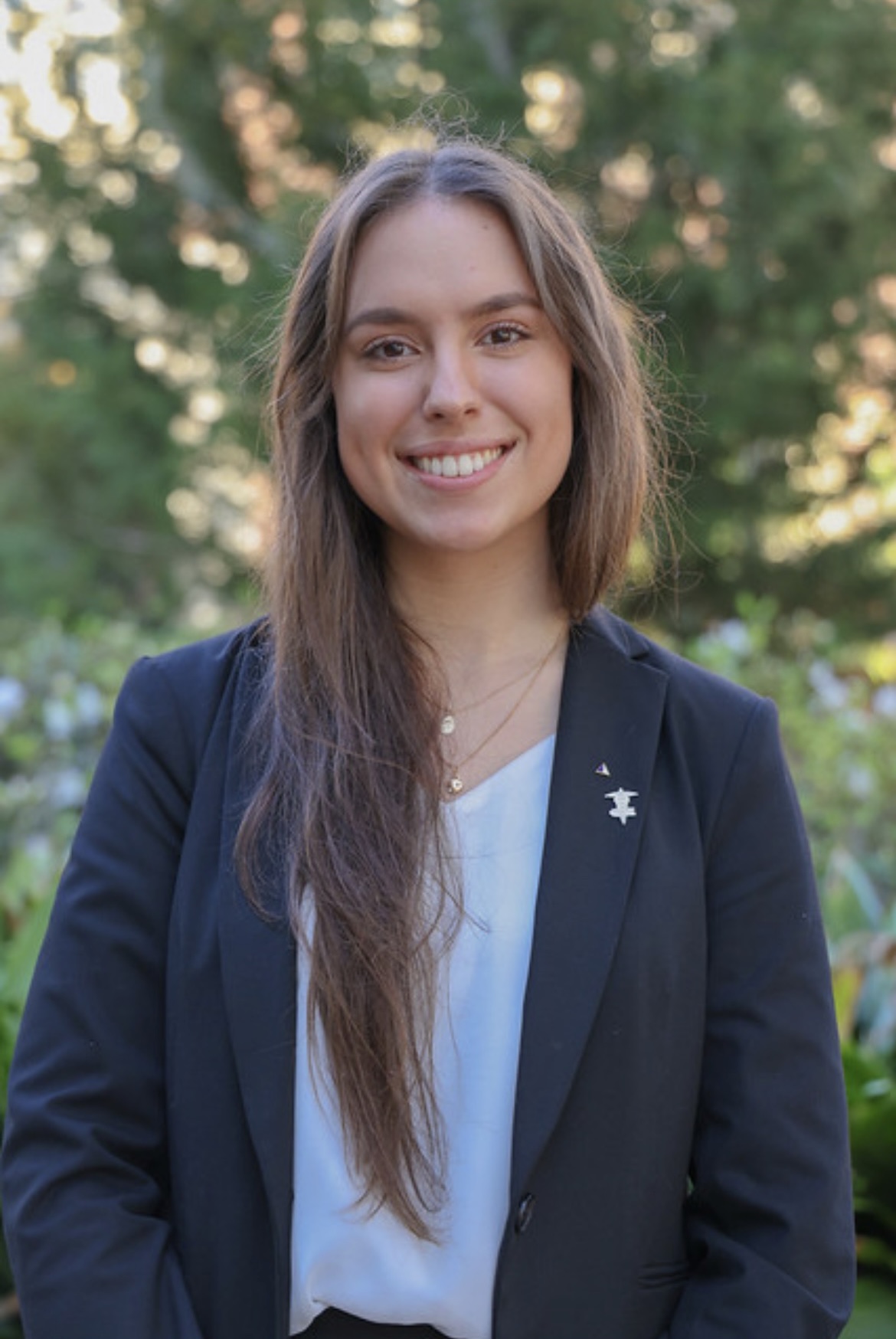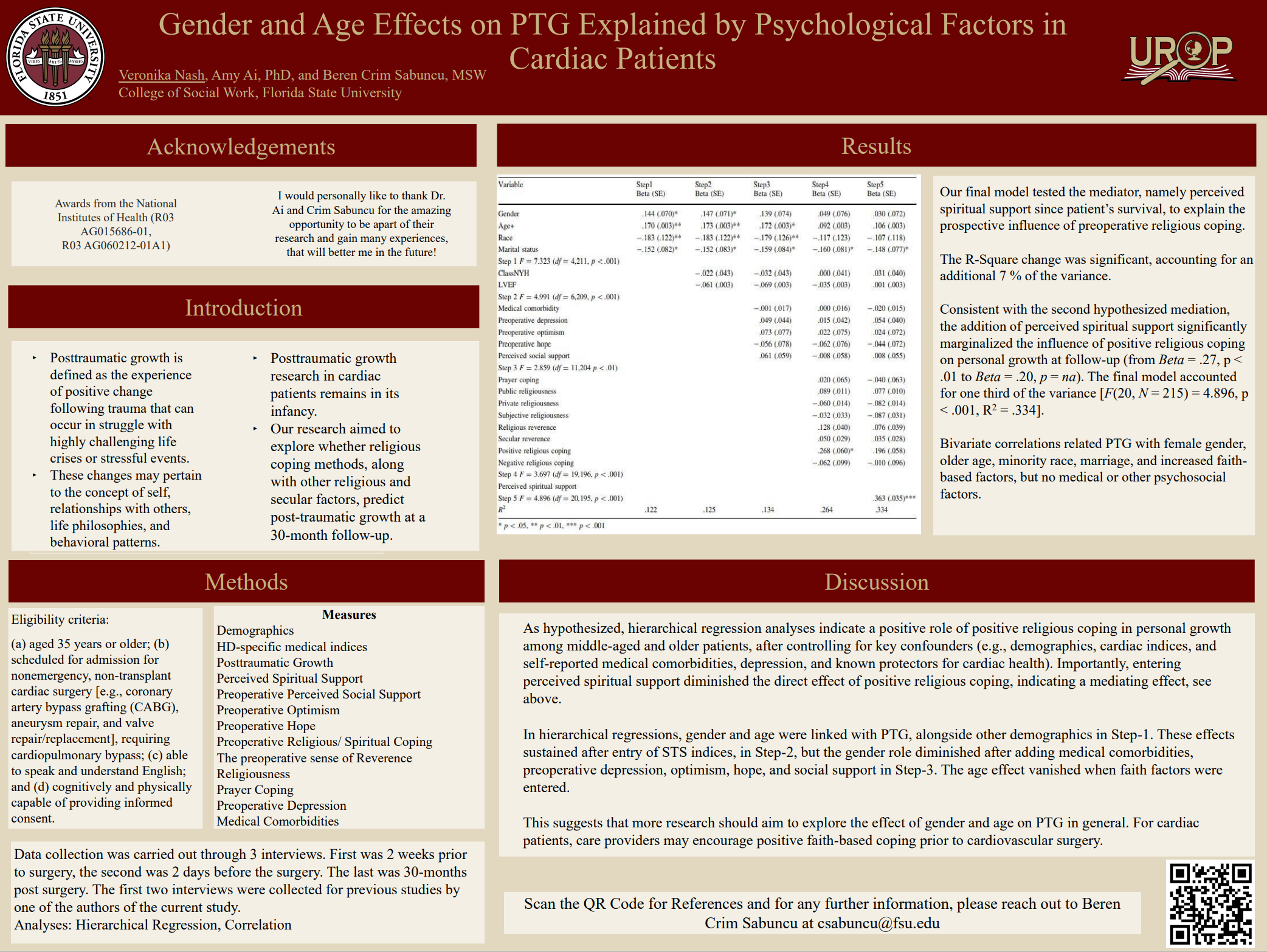Research Symposium
23rd annual Undergraduate Research Symposium, April 6, 2023
Veronika Nash Poster Session 2: 1:30 pm - 2:30 pm/ Poster #401

BIO
My name is Veronika Nash and I am currently a second year student, majoring in Behavioral Neuroscience with a pre-medical track. I am from Daytona Beach, Florida, growing up in an immigrant/ first generation household. Due to this, I strive to broaden my knowledge and get involved on campus to utilize opportunities. One method has been getting involved in research to open up new endeavors for my future. During my time in UROP, I grew interests in psychology with a focus of public health, to have different concepts of psychology make a positive impact on the community. With my time spent with my research mentor, Dr. Amy Ai, I have been able to grow my professionalism and take on tasks to gain new experiences and knowledge. In the future, I plan to go to medical school to further specialize in pediatric or emergency medicine!
Age and Gender Effects on PTG Explained by Psychological Factors in Cardiac Patients
Authors: Veronika Nash, Dr. Amy AiStudent Major: Behavioral Neuroscience
Mentor: Dr. Amy Ai
Mentor's Department: Department of Social Work Mentor's College: College of Social Work Co-Presenters:
Abstract
The present study explored the role of gender on posttraumatic growth (PTG) 30-months after cardiac surgery and mediation of preoperative psychosocial factors. Two previous meta-analyses found that woman tended to have more growth than men, and that PTG was associated with improved overall health, but most studies were cross-sectional and small-scale. Using a prospective design, we followed 262 patients undergoing cardiovascular operations with surveys and objectively measured medical indices from the Society of Thoracic Surgeons' (STS) national database. Participants completed a follow-up survey on PTG 30-month after surgery. Bivariate correlations related PTG with female gender, age, minority race, marriage, and faith-based factors, but no medical or other psychosocial factors. In hierarchical regressions, gender and age were linked with PTG, alongside other demographics in Step-1. These effects sustained after entry of STS indices, in Step-2, but the gender role diminished after adding medical comorbidities, preoperative depression, optimism, hope, and social support in Step-3. No other factor in these steps had an impact. The age effect vanished when faith factors were entered, but only positive spiritual coping (PSC) were related to PTG. Finally, the role of PSC on PTG was mediated by perceived spiritual support. The final model was significant, accounting for one-third of the variance [F (20, N = 215) = 4.896, p < .001, R2 = .334] in PTG. This suggests that more research should explore the effect of gender and age on PTG in general. For cardiac patients, care providers may encourage positive faith-based coping prior to cardiovascular surgery.
Keywords: Age, Cardiac, Posttraumatic Growth

